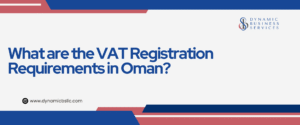The UAE corporate tax regime has introduced new compliance requirements for businesses, making corporate tax audits an essential part of financial management. Whether you run a small company or a multinational branch in Dubai, Abu Dhabi, or any other emirate, being prepared for an FTA tax audit is crucial to avoid penalties and maintain trust with regulators. This guide explains everything you need to know — from what audits mean, to steps you can take today to stay audit-ready.
Table of Contents
Understanding Corporate Tax Audits in the UAE
Before diving into preparation, it’s important to know what a corporate tax audit involves. The Federal Tax Authority (FTA) conducts these audits to check if a company is compliant with the UAE Corporate Tax Law.
Audits may be:
- Desk audits, where the FTA requests documents for remote review.
- Field audits, where officials visit your company to inspect records, processes, and systems.
Both types require organized records, timely submissions, and transparent communication with the authorities.
Why Businesses Face Corporate Tax Audits
No company is immune to audits. The FTA can select businesses randomly, but certain triggers increase the chances of being audited.
Common Audit Triggers
- Filing inconsistencies in tax returns.
- Unusual spikes in revenue or expenses.
- Large refunds or exemptions claimed.
- Late or missing submissions.
- Complex structures with related-party or cross-border transactions.
Risks of Being Unprepared
Ignoring compliance can result in:
- Hefty financial penalties.
- Reputational damage with clients and partners.
- Business disruptions during investigations.
- Higher future audit scrutiny.
Pre-Audit Preparation: Laying the Groundwork
The best way to handle an audit is to prepare long before one begins. Building strong systems ensures that when an FTA notice arrives, you are ready.
Maintaining Accurate Financial Records
Your financial statements, invoices, contracts, and receipts must align with IFRS standards. Regular reconciliation reduces the risk of discrepancies.
Document Retention Rules
Keep tax and accounting records for at least seven years. This includes digital and physical copies of ledgers, invoices, payroll data, and contracts.
Internal Controls and Reviews
Implement internal audits and checks to detect risks early. Use reliable accounting software that maintains an audit trail.
Key Documents Needed for a Corporate Tax Audit
When the FTA requests information, the following records are typically required.
Financial Statements
- Profit and loss accounts.
- Balance sheets.
- Cash flow statements.
Tax Returns and Supporting Papers
- Corporate tax returns filed during the audit period.
- VAT returns (if applicable).
Payroll and HR Records
- Salary slips, contracts, and allowances.
- Emiratisation and staffing compliance documents.
Contracts and Invoices
- Sales and purchase invoices.
- Long-term client or vendor agreements.
Bank Statements
- All transaction records with reconciliation reports.
Transfer Pricing Documentation
For businesses with related-party transactions, having transfer pricing reports is mandatory to show compliance with arm’s length principles.
Steps to Take When Notified of a Tax Audit
Receiving an audit notice can be stressful, but systematic preparation makes it easier.
Appoint an Audit Coordinator
Assign a trained staff member or consultant as the single point of contact with auditors. This avoids miscommunication and ensures faster responses.
Understand the Audit Scope
Read the audit notice carefully. It will specify the years, documents, and processes under review.
Provide Clear and Organized Data
Submit documents in the requested format. Organized records reflect transparency and professionalism.
Cooperate During Field Audits
If FTA officials visit your premises, ensure management and accounting staff are available to answer queries.
Post-Audit Actions: Learning from the Experience
Once the audit is complete, the FTA may issue findings or penalties. What you do next defines your long-term compliance health.
Reviewing Audit Findings
Go through the report thoroughly. Identify compliance gaps and areas where your systems need strengthening.
Implementing Corrective Measures
If adjustments are required, revise your tax returns and accounting records accordingly. Corrective action shows good faith.
Preparing for Future Audits
Use the audit as a learning opportunity. Strengthen internal audits, train staff, and update compliance frameworks regularly.
Sector-Specific Considerations
Different industries in the UAE face unique challenges.
Free Zone Companies
Free zone entities claiming tax exemptions must prove substance requirements, maintain audited financial statements, and comply with Qualifying Free Zone Person (QFZP) rules.
Large Corporates vs SMEs
- Large businesses: More likely to face audits, especially those exceeding AED 50 million turnover.
- SMEs: May face fewer audits but still must maintain proper documentation.
Multinational Groups
Companies with cross-border operations need to prioritize transfer pricing compliance and prepare master and local files.
Common Mistakes Businesses Make
Avoiding mistakes can save time, money, and penalties.
Poor Documentation
Missing or incomplete invoices and bank records raise red flags.
Wrong Expense Classification
Personal expenses claimed as business costs can lead to penalties.
Late Filing
Delays in submitting tax returns attract automatic fines.
Ignoring Transfer Pricing
Businesses with related-party transactions often fail to maintain proper documentation, which is a major compliance risk.
Best Practices for Audit Readiness
Following a proactive approach keeps your business prepared year-round.
Adopt Robust Accounting Software
Choose systems that support compliance, generate reports easily, and maintain audit trails.
Conduct Mock Audits
Hire external experts for dry runs that simulate FTA reviews.
Train Employees
Ensure your finance and HR teams understand their roles in compliance.
Stay Updated
Regularly monitor updates from the Federal Tax Authority and adjust your compliance accordingly.
Sample Audit Checklist
| Task | When to Complete | Responsible Person |
| Reconcile bank accounts | Monthly | Finance team |
| Conduct internal audit | Quarterly | Internal auditor |
| Update transfer pricing documentation | Annually | Tax advisor |
| Review VAT and corporate tax returns | Every filing cycle | Accountant |
| Train staff on compliance | Yearly | HR/Compliance team |
Conclusion
Preparing for a corporate tax audit in the UAE requires ongoing effort. By maintaining accurate records, understanding FTA expectations, and taking a proactive compliance approach, businesses can avoid fines and maintain their reputation. Whether you are a startup or a multinational, audit readiness is part of sustainable growth in the UAE’s evolving tax landscape.
FAQs
Is audit required for corporate tax in the UAE?
Yes. Companies exceeding turnover thresholds or seeking specific exemptions must have their financial statements audited.
How to prepare a tax audit?
Organize documents, review records, conduct internal audits, and cooperate with auditors transparently.
What is the turnover limit for tax audit in UAE?
Companies with annual turnover above AED 50 million must submit audited financials.
What is the procedure for a tax audit?
The FTA issues a notice, reviews records, conducts desk or field audits, and shares findings.
How to audit step by step?
Plan records, assign a coordinator, gather documents, respond to queries, and address findings.
What is the limit of tax audit for a company?
The limit depends on size, turnover, and whether the company is mainland or free zone.








